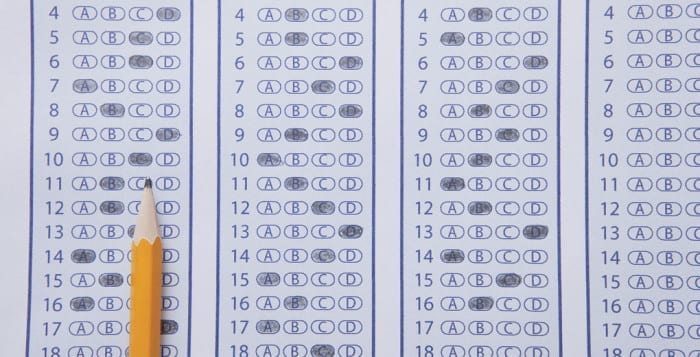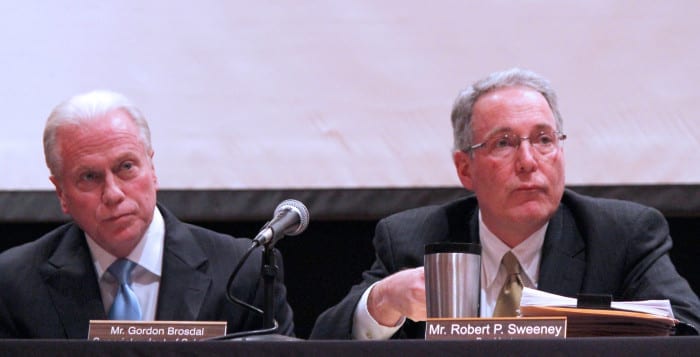Northport-East Northport Superintendent Robert Banzer updated the school board and audience members about the changes in Common Core Learning Standards at a meeting last week.
The Oct. 22 presentation covered upcoming state assessment changes and teacher and principal annual professional performance reviews (APPR) shifts.
According to Banzer’s presentation, as far as learning standards go, the English language arts and math common core standards have been adopted and implemented, the social studies standards have been adopted but not implemented and the science standards are only under review and have not yet been adopted or implemented.
Several shifts are happening in the ELA and literacy, social studies and mathematic standards. The shifts in ELA and literacy are mostly focused on having students engage with the text more.
Students will have a “true balance of informational and literary texts,” according to the presentation and students will build knowledge about the world “through text rather than the teacher.”
The math changes include striking a balance between practicing and understanding math skills in the classroom.
“Both are occurring with intensity,” according to the presentation. There is also an emphasis on students “deeply understanding” math concepts. “They learn more than the trick to get the answer right. They learn the math.”
New social studies standards mirror those in ELA and literacy.
These include using informational text to support an argument to help students “develop the skills necessary for 21st century college, career and citizenship standards.”
In June 2018, a new global history and geography exam will be administered based on the new framework, and in June 2019 a new US history and government exam will follow.
For science standards, a steering committee was formed in August 2014 and a public survey is currently being developed to gather feedback on a new set of science learning standards for grades pre-kindergarten to 12. Adoption of a five-year strategic plan is anticipated in 2016.
Gov. Andrew Cuomo has created a Common Core task force amid growing boycotts of standardized tests.
According to the governor’s website, the task force is a diverse and highly qualified group of education officials, teachers, parents and state representatives from across New York. The group will complete a review and deliver its final recommendations by the end of this year.
There are also changes to assessments, including a greater input from teachers in the test development process.
In grades three through eight, ELA tests will have fewer questions in 2015-2016. Computer based testing will also be field-tested.
Changes to APPR are also on the way.
A new education law requires districts to negotiate new annual professional performance review criteria by Nov. 15, unless the district applies for and receives a hardship waiver, which would extend its deadline.
Banzer said that Northport-East Northport has applied for and received its hardship waiver just last week. The waiver is for four months and a district can apply again for another extension, according to the presentation.
“Knowing from May to November, for many districts, to negotiate would be impossible or impractical to try,” Banzer said. “We bought ourselves some much needed time with this process.”















